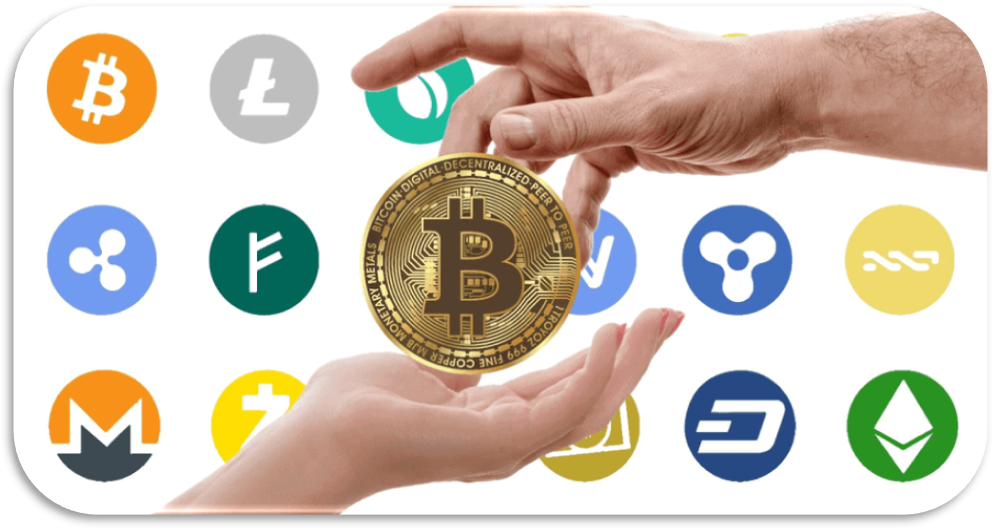Blockchain is a young and widely used technology that records any type of transaction in the form of a digital ledger in a way that is immutable and unalterable. These recorded items, also known as information blocks, are created based on encrypted technology.
The information and data stored in blocks are easily verifiable, and all blockchain members have access to them. Since blockchain technology is decentralized and not dependent on any specific entity, organization, or individual, anyone in the world with a computer connected to the blockchain network has the capability to access it and utilize this technology.
Numerous applications have been built based on blockchain, providing a wide range of solutions and features that every individual needs to enhance their business. But as a business owner, how can you use blockchain in your business? What are the applications of blockchain for your profession?
However, blockchain technology has the potential for more applications beyond Bitcoin. Below, we have outlined some emerging uses of blockchain in financial, commercial, governmental, and other industries.
|
Seeking to optimize with accounting software How CRM system adds value to your small business |
Use Cases of Blockchain in Banking and Financial Services
-
International Payments Blockchain provides a secure and efficient way to create an unalterable record of sensitive activities, making it ideal for international payments and fund transfers.
-
For example, in April 2018, Banco Santander launched the first blockchain-based money transfer service, allowing customers to perform international money transfers on the same day or the next day.
-
By automating the entire process on the blockchain, Santander reduced the need for intermediaries typically involved in these transactions, making the process more efficient.
-
As a major commercial bank, Santander has numerous retail customers who benefit from more efficient and cost-effective payments, especially in the field of international transfers. By reducing the need for manual settlement of transactions, blockchain technology can be used to lower the costs associated with these transfers.
-
- Capital Markets

Blockchain-based systems also have the potential to improve the capital markets. Some of the advantages that blockchain solutions offer to capital markets include:
-
Faster Settlement and Clearing Blockchain systems have the potential to improve the efficiency of settlement and clearing processes in capital markets.
-
Integrated Audit Trail Blockchain solutions offer an integrated audit trail for enhanced transparency and accountability in financial transactions.
-
Operational Improvements The implementation of blockchain can lead to operational improvements in capital market processes.
Startup Axoni, founded in 2013, specializes in creating blockchain-based solutions specifically to enhance the capital markets. Recently, Axoni announced the launch of a distributed ledger network for managing equity exchange transactions, enabling both parties in equity exchange to synchronize throughout their lifecycle and communicate real-time changes.
- Financial Trade
Traditional methods of financing trade have been a significant headache for businesses, as slow processes often disrupt business operations and complicate cash management. Cross-border trade involves a myriad of variables when exchanging information, such as the country of origin and product details, and generates a high volume of documents.
Blockchain has the potential to simplify and streamline financial trade transactions, making processes more efficient across borders. It enables companies to easily transact with each other beyond regional or geographical boundaries.
- Regulation and Auditing
The inherently secure nature of blockchain makes it highly valuable for accounting and auditing, significantly reducing the risk of human error and ensuring record integrity. Moreover, once records are locked using blockchain technology, no one can alter account records, not even record owners. The balance here is that blockchain technology can ultimately eliminate the need for auditors and disrupt the auditing business.
- Anti-Money Laundering (AML) Compliance
Encryption, which is crucial for blockchain, makes it highly useful in combating money laundering. The technology strengthens the maintenance of records, supporting the "know your customer" (KYC) process through which a business identifies and verifies the identities of its customers.
- Insurance
Certainly, the most significant use of blockchain in insurance is through smart contracts. These contracts allow customers and insurers to manage claims transparently and securely. All contracts and claims can be recorded on the blockchain and validated by the network, eliminating invalid claims, as blockchain rejects multiple claims for a single incident.
- Peer-to-Peer Transactions
P2P payment services like Venmo are convenient but come with limitations. Some services restrict transactions based on geography. Others charge fees for their use. Many of them are vulnerable to hackers, which is unattractive to customers who entrust their personal financial information to these platforms. Blockchain technology, with all the mentioned benefits, can overcome these barriers.
Use Cases of Blockchain in Business
- Supply Chain Management
The immutable nature of blockchain makes it suitable for tasks like real-time tracking of goods during transportation and managing changes in the supply chain. Blockchain provides various options for logistics companies. Inputs to a blockchain can be used for event sorting within the supply chain—for example, allocating goods that have just arrived at a port to different transportation containers. Blockchain offers a new and dynamic tool for organizing tracking data and utilizing it effectively.
- Healthcare
Suitable healthcare data for blockchain includes general information such as age, gender, and potential primary data, as well as medical history like vaccination history or vital signs. On its own, none of this information can specifically identify a particular patient, which allows it to be stored collectively in a blockchain accessible by multiple individuals without undue privacy concerns.
As specialized connected medical devices become more common and increasingly linked to individuals' health records, blockchain can connect these devices to those health records. Devices can store healthcare data generated in a blockchain and add it to personal medical records.
- Real Estate Agents
On average, a homeowner sells their home every five to seven years, and an individual moves nearly 12 times during their lifetime. With such frequent relocation, blockchain can undoubtedly be utilized in the real estate market. With quick financial transactions confirmation, it expedites home sales, reduces fraud through its encryption, and provides transparency throughout the buying and selling process.

- Media
Media companies have already begun to leverage blockchain technology to eliminate fraud, reduce costs, and protect intellectual property rights, such as music recordings.
One platform that has garnered attention for its use of blockchain in media is Eluvio, Inc. Eluvio Content Fabric, officially launched in 2019, uses blockchain technology to empower content creators to manage and distribute premium videos to consumers and business partners without content delivery networks.
Recently, this platform has been adopted by media giant MGM Studios for "global streaming to web, mobile, and TV audiences everywhere for special events."
- Energy
According to PwC, blockchain technology can be used for executing energy supply transactions, as well as providing a foundation for measurement, invoicing, and settlement processes. Other potential applications include ownership documentation, asset management, origin guarantees, publishing licenses, and certificates for renewable energy.
Use Cases of Blockchain in Government
- Record Management
National, state, and local governments are responsible for maintaining records of individuals, such as birth and death dates, marital status, or property transfers. However, managing these data can be challenging, and some of these records still exist only in paper form. Sometimes, citizens are required to physically visit their local government offices to make changes, which can be time-consuming and cumbersome. Blockchain technology can simplify this record-keeping and significantly enhance data security.
- Identity Management
Advocates of blockchain technology for identity management argue that with sufficient information on the blockchain, individuals would only need to provide minimal details (e.g., birthdate) to prove their identity. This could streamline identity verification processes and reduce the need for redundant identity checks in various government services.
- Voting
Blockchain technology has the potential to make the voting process easily accessible while enhancing security. Hackers find it difficult to manipulate blockchain technology because even if someone gains access to a terminal, they cannot influence other nodes. Each vote is associated with a unique identifier, and the inability to create a forged identifier makes it more effective for government authorities to collect votes.
- Taxation
Blockchain technology can streamline the cumbersome tax registration process, which is susceptible to human error, by using the stored data in the blockchain efficiently.
- Nonprofit Organizations
Blockchain can address the trust issues increasingly faced by charities through increased transparency. This technology has the ability to demonstrate to donors that agencies are indeed using their funds as intended. Additionally, blockchain technology can help nonprofit organizations better manage their resources and enhance their tracking capabilities.
Blockchain Applications in Other Industries
Blockchain technology is also used in other industries, including but not limited to:
- Financial Management and Accounting
- Record Management
- Cybersecurity
- Big Data
- Data Storage
- Internet of Things (IoT)
If you believe your business can benefit from blockchain or have questions about blockchain applications, feel free to get in touch with us.


